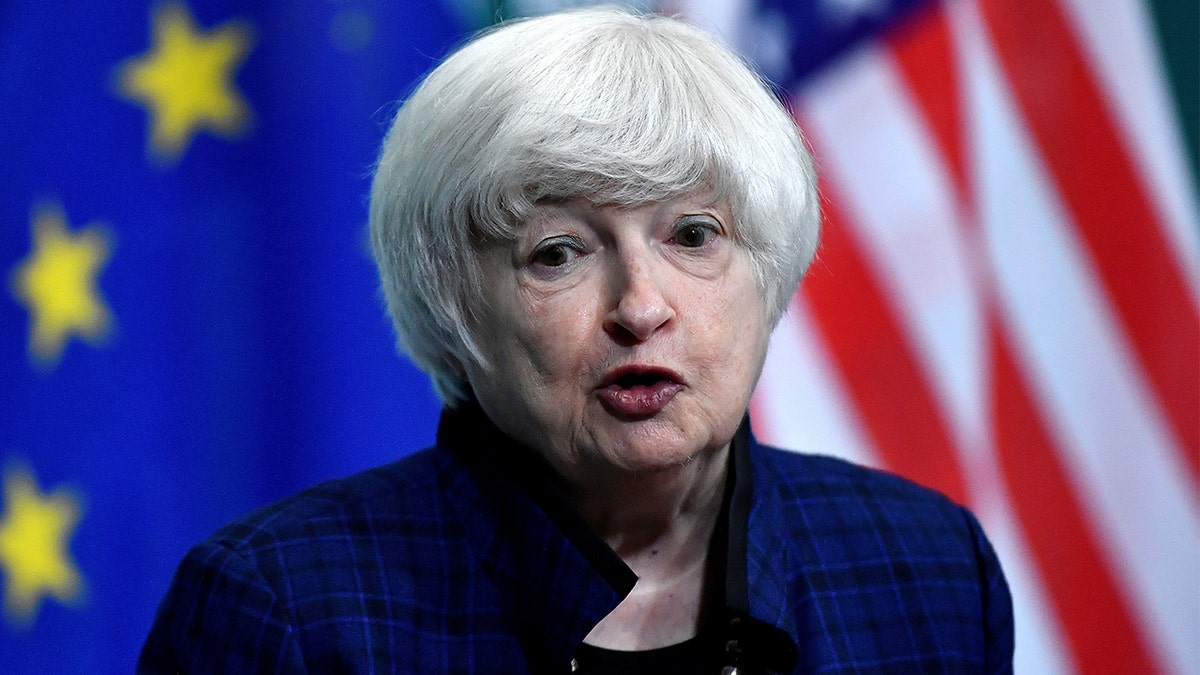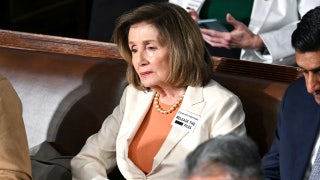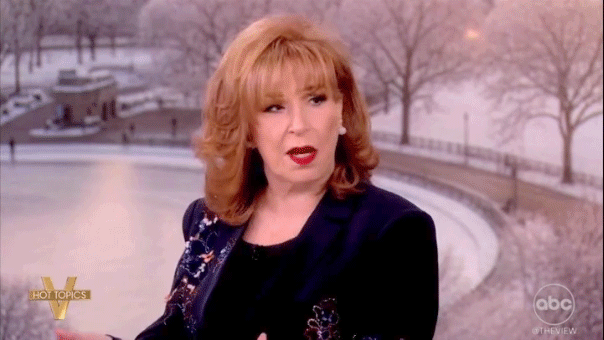Biden White House adviser: 'It's not a recession'
National Economic Council Director Brian Deese told CNN that the U.S. was not in a recession, even if it had two straight quarters showing contraction in GDP.
With the Biden administration facing the prospect of a second consecutive quarter of negative economic growth, top officials in media appearances have started rejecting that as the traditional definition of recession.
The U.S. has a low unemployment rate of 3.6 percent and has posted four straight months with at least 350,000 new jobs created, but record inflation and high gas prices have dampened Americans' enthusiasm about their economic prospects. The Bureau of Economic Analysis will release the second quarter's gross domestic product (GDP) numbers on Thursday, on the heels of a first quarter of 2022 that showed a 1.4-percent contraction.
National Economic Council Director Brian Deese, asked on CNN Monday what it would mean if data released this week show a second consecutive quarter of negative GDP growth, said such figures were "inherently backward-looking, and they capture different elements of economic activity."
"I think the bottom line is, if you look at the labor market, if you look at what consumers are spending, what businesses and households are investing, you continue to see this resilience. But that's no reason for complacency," he told CNN's John Berman.

Brian Deese, director of the National Economic Council, speaks during a news conference in the James S. Brady Press Briefing Room at the White House in Washington, D.C., U.S., on Thursday, March 31, 2022. (Photographer: Michael Reynolds/EPA/Bloomberg via Getty Images)
"It sounds like you’re anticipating what will be comments from some saying, two quarters of negative growth in a row, that’s a recession," Berman said.
"Certainly in terms of the technical definition, it’s not a recession," Deese said. "The technical definition considers a much broader spectrum of data points. But in practical terms, what matters to the American people is whether they have a little economic breathing room, they have more job opportunities, their wages are going up. That has been Joe Biden’s focus since coming into office."
The Washington Post's Aaron Blake, noting the Biden administration's attempt to pre-empt Thursday's report, explained the National Bureau of Economic Research (NBER) takes into account numerous factors when determining if the economy is in a recession, "but GDP is the big one."
On Saturday, the White House Council of Economic Advisers' Jared Bernstein said a number of measurables were "inconsistent with recession" in response to CNN's Pamela Brown, as she previewed the Commerce Department's coming report.
FOX NEWS POLL: VOTERS SAY THE ECONOMY IS BAD, AND THEY EXPECT IT WILL GET WORSE
"Analysts project it could show the second quarter GDP numbers in decline. That would be two in a row, and technically a way to define a recession is two consecutive quarters of declining GDP numbers," Brown said. "If that happens next week, if those numbers come out and reflect that, will the White House view this country as being in a recession? And if not, what then would the White House — what would the definition be for the White House of a recession?"

White House Council of Economic Advisers member Jared Bernstein speaks during a press briefing at the White House in Washington, U.S., April 1, 2022. (REUTERS/Kevin Lamarque)
Bernstein cited the NBER's Business Cycle Dating Committee, which he said decides "in hindsight" whether the country is in a recession because the "data come in with a bit of a lag."
"If you look at consumer spending and if you look at jobs, this very strong job market in the background, that’s a very useful buffer. But, look, nobody including — especially the White House and especially Joe Biden — is going to sugarcoat any of this," Bernstein said. "We know exactly where we started our conversation from, Pamela, that prices are too elevated. We are very glad we have these buffers in the background to help people get through this time, but we are doing everything we can to help bring these prices down."
"What I took away from your long answer, just to be precise, if the numbers come out in decline next week, the White House will still not consider this country being in a recession," Brown said.
CNN ANALYSIS: BIDEN FACING ‘MOMENT OF TRUTH’ THIS WEEK WITH RELEASE OF CRITICAL ECONOMIC DATA
"No, no, if that’s what you took away, let me clarify," he said. "It is not a definition we're taking, that the official Business Cycle Dating Committee, they’re the ones who declare a recession, not the White House. They do it after the fact, because the data come in months and quarters later. So what we will do is we will look at the data that the Business Cycle Dating Committee uses, retail sales, consumer spending, payroll employment, industrial production. We will look at every one of those variables and tell you where they've gone.
"In first half of the year, they looked to us and most other economists inconsistent with recession. But that’s the first half. We will have to see where the second half goes from here."
The White House Council of Economic Advisers said in a blog post on Friday that even if the advance estimate of the country's GDP was negative, it was still "unlikely" to be indicative that the country is in a recession.
"What is a recession? While some maintain that two consecutive quarters of falling real GDP constitute a recession, that is neither the official definition nor the way economists evaluate the state of the business cycle," the blog post stated.

U.S. Treasury Secretary Janet Yellen speaks during a news conference with Irish Finance Minister Paschal Donohoe at Government buildings in Dublin, Ireland, Nov. 1, 2021. (REUTERS/Clodagh Kilcoyne)
Asked about the blog post on Friday and whether the White House was "trying to change the common definition of a recession," White House press secretary Karine Jean-Pierre said "historic" job numbers told the story.
"So, again, the strength of our labor market, along with the economic indicators, is not what we generally see as we talk about recession or even pre-recession," she said.
On NBC News' "Meet the Press" on Sunday, host Chuck Todd noted to Treasury Secretary Janet Yellen that in addition to the second-quarter GDP numbers, inflation numbers for June and a consumer confidence survey were forthcoming, wondering what figure was most important to her in determining economic strength.
Yellen went on to say that a "common definition" for a recession is two consecutive quarters of negative GDP, and while economists expect to see negative growth again this quarter after seeing -1.4% last quarter, that still wouldn’t mean the U.S. is in a recession.
"Well, I look at all the data, and GDP will be closely watched," Yellen said. "A common definition of recession is two negative quarters of GDP growth, or at least that’s something that’s been true in past recessions. When we have seen that, there has usually been a recession. And many economists expect second-quarter GDP to be negative. First-quarter GDP was negative, so we could see that happen, and that will be closely watched. But I do want to emphasize, what a recession really means is a broad-based contraction in the economy. And even if that number is negative, we are not in a recession now, and I would, you know, warn that we should be not characterizing that as a recession."
Todd said Yellen was "splitting hairs" with her answer, but Yellen also pointed to the NBER's data.
CLICK HERE TO GET THE FOX NEWS APP
"I would be amazed if the NBER would declare this period to be a recession, even if it happens to have two-quarters of negative growth," she said. "We've got a very strong labor market. When you're creating almost 400,000 jobs a month, that is not a recession."
For his part, a raspy President Biden, taking questions virtually due to testing positive for COVID-19 last week, told Fox News' Peter Doocy on Monday that whatever this week's numbers say, "we're not going to be in a recession, in my view."
FOX Business' Adam Sabe and Jessica Chasmar contributed to this report.










































